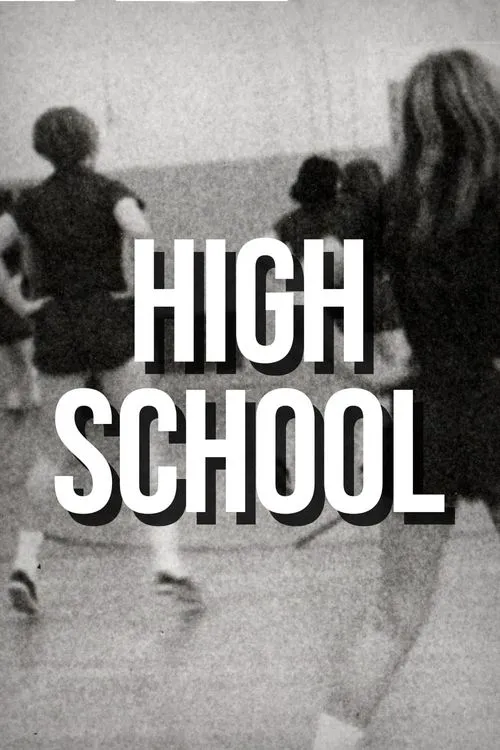High School

あらすじ
In the unobtrusive and observational style of documentary filmmaker Frederick Wiseman, "High School" is a piercing examination of the inner workings of Northeast High School. Shot in 1980, the documentary provides a candid look at the lives of students and staff alike, raising profound questions about the social, economic, and educational systems that shape the lives of the young. The film is a fly-on-the-wall exploration of this comprehensive high school in Philadelphia, where Wiseman follows the daily routines of both students and teachers with remarkable intimacy and precision. At the center of the film are the teachers, who are portrayed with both affection and criticism. Some, such as English teacher Diane Goldner, are depicted as compassionate and understanding, while others are shown to be dismissive, authoritarian, or apathetic. Throughout the film, Wiseman interwines the mundane routines of high school life with moments of drama and tension. In one notable sequence, a group of students are seen navigating the complexities of high school relationships, their insecurities and rivalries spilling over into the hallways and classrooms. At the same time, the film also captures the more mundane aspects of school life, such as the preparation of food in the cafeteria and the mundane routines of administrative tasks. One of the key themes that emerges in "High School" is the struggle between social mobility and institutional bureaucracy. The teachers and administrators at Northeast High School are often depicted as out of touch with the challenges faced by their students, who come from disadvantaged backgrounds and are frequently burdened by poverty, violence, and trauma. In a poignant scene, a group of students are seen arguing about their future prospects, with one student lamenting the bleak possibilities that face him: "I'm never going to make it anywhere," he says. The film suggests that the educational system is complicit in this pessimism, perpetuating a cycle of failure and disillusionment that can be difficult to escape. Wiseman's filmmaking style in "High School" is notable for its unobtrusiveness and restraint. He refuses to impose his own narrative or commentary on the events unfolding before the camera, instead allowing the audience to form their own opinions about the characters and events on screen. This approach creates a sense of immediacy and intimacy, drawing the viewer into the world of the school and forcing them to confront the complexities and challenges faced by the students and teachers. At the same time, Wiseman's lack of intervention also highlights the problems with the school's culture and pedagogy. For example, in one memorable scene, a teacher is seen dismissing the concerns of a student, who has been struggling to understand a complex mathematical concept. The student's confusion and frustration are palpable, but the teacher's response is dismissive and unsympathetic. This moment serves as a stark illustration of the ways in which the educational system can fail to meet the needs of its students, perpetuating inequality and social injustice. "High School" also raises important questions about the role of the teacher in the educational process. Some of the teachers portrayed in the film are depicted as compassionate and supportive, while others appear to prioritize discipline and control over pedagogy and empathy. These contrasting approaches are highlighted in a fascinating sequence in which two teachers are seen interacting with a group of students. One teacher, Diane Goldner, approaches her students with warmth and understanding, encouraging them to engage with the material and participate in class. The other teacher, meanwhile, adopts a stricter and more authoritarian approach, doling out punishments and reprimands for even minor infractions. The contrast between these two approaches serves as a powerful metaphor for the broader struggle between social justice and institutional power in the school. Wiseman's film raises important questions about the way in which power is exercised in the educational system, and the ways in which this can lead to inequality and social injustice. Ultimately, "High School" is a film that refuses to offer easy answers or solutions to the complex problems it illuminates. Instead, it presents a nuanced and multifaceted portrait of a high school in crisis, highlighting the tensions and contradictions that shape the lives of teachers and students alike. This is a film that challenges the audience to think more critically about the role of education in society, and the ways in which institutions shape the possibilities for social mobility and change.


